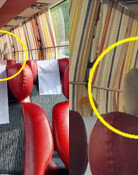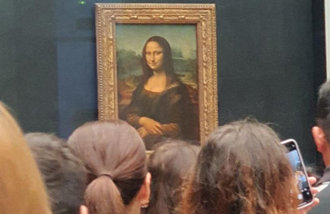Jindo Dogs Gets Formal Recognition From U.K. Kennel Club
Jindo Dogs Gets Formal Recognition From U.K. Kennel Club
Posted May. 23, 2005 03:41,
Natural Monument Number 53, the Jindogae (Jindo Dog), beloved as the nations dog, has recently been formally registered by the worlds number one dog organization, the Kennel Club of the United Kingdom. Consequently, Jindogaes are now shoulder to shoulder with the worlds finest dogs such as the German Shepherd, Greyhound, Collie and Poodle.
At Jindo in Jeollanam-do, the birthplace of the Jindogae, people are singing a happy tune since now they will be able to export them at high prices. Additionally, for the preservation of the pedigree and the production of a superior breed, the dogs systematic management and a standardization process are being accelerated.
Jindogae Joins the Ranks of Top Dogs -
Since 1873, along with the American Kennel Club (AKC) and the Federation Cynologique International (FCI), the U.K. Kennel Club has been recognized as one of the worlds top three dog registration organizations and has the longest history. This club is supported by the royal family of England and has 196 dogs registered worldwide.
After the Jindogae that Jindo County sent to the Kennel Club had a litter of 6 puppies, and after breed tests such as DNA analyses, the Jindogae was approved as an independent breed. Accordingly, starting next year, the Jindogae will be able to participate in the competition category of the Cruft Show, also known as the dog olympics.
The Jindogae also has registration at the FCI ahead in July. The only thing left is the official announcement at the Argentina FCI general meeting on July 5 after approval processes such as a field investigation are completed.
The director of the Jindo Dog Research and Testing Center, Yoon Chang-ho, said, We are targeting the registration in the AKC, the most fastidious among the top three dog clubs with 174 breeds registered worldwide, at 2008.
The Economics of the Jindogae
The number of Jindogaes bred in Jindo county was 12,882, as of the end of April. Among these, 5,998 are registered and managed as natural monuments. The others are either not over six months old or have been left out of the screening process.
Among the total 15,800 households in Jindo County, one out of five is raising a Jindogae.
In Jindo, when Jindogaes turn six months old, they are obligated to undergo an examination of 24 items such as the head, physique, tail, and teeth, by a certified Jindo dog judge.
There are only two circumstances in which a Jindogae can be taken outside of Jindo: If it is under three months old or do not pass the screening process, it is possible to sell them outside of Jindo. The amount of money earned by the residents of Jindo is five to six billion won. The price of puppies under three months of age is 200,000 to 700,000 won, and those that have not passed the examination are sold at 100,000 to 120,000 won.
Jindo county explains that due to the registration with the Kennel Club of the U.K. Jindogaes will be sold at 1000 to 2000 dollars abroad. Additionally, if a superior breed is produced and an international pedigree document is included, it is expected that the dogs can be worth up to 10,000 dollars
The Management of the Pedigree Is the Key
The pedigree of the Jindogae has been questioned as Jindogaes have started to be sent outside of the county without an examination before three months.
For Jindo County to quiet these questions and select a characteristic breed, the standardization of the Jindogae has been promoted since 1998.
Jindogaes in breeding are managed by a electronic chip (two millimeters in length) with 10 numerals stating such facts as the birth, appearance, address, and the examination scores of the dog, and is inserted hypodermically at the nape of the neck.
Lee Gye-ung, a veterinarian at the Jindo Dog Research and Testing Center said, Until now we have issued an appraisal certificate, a kind of birth certificate. However, starting in 2008, we will issue a pedigree certificate with such elements as a family tree of over three generations to validate that it is a pure-bred.
Seung-Ho Jung shjung@donga.com







